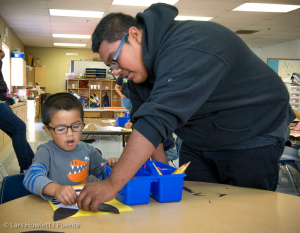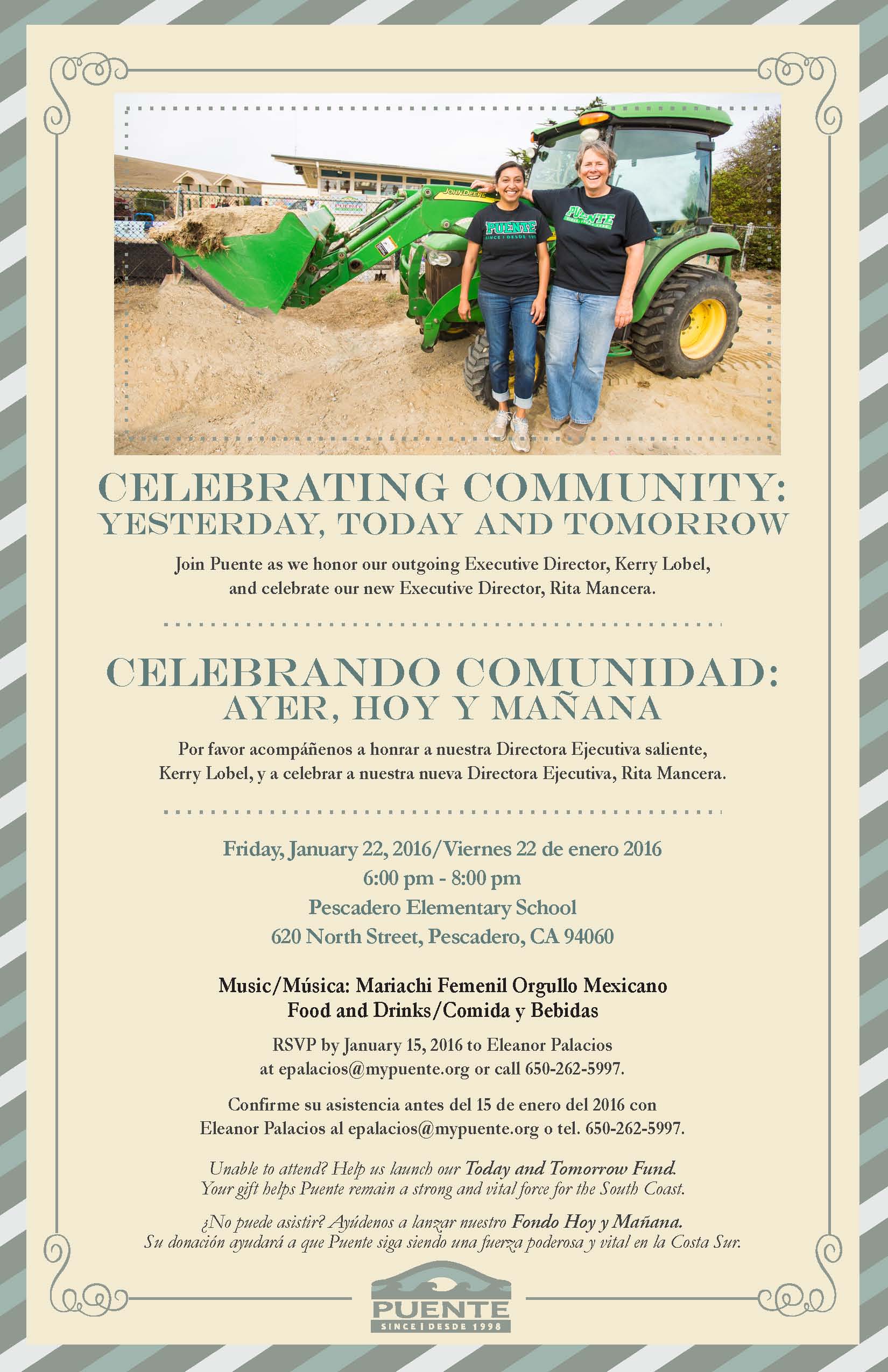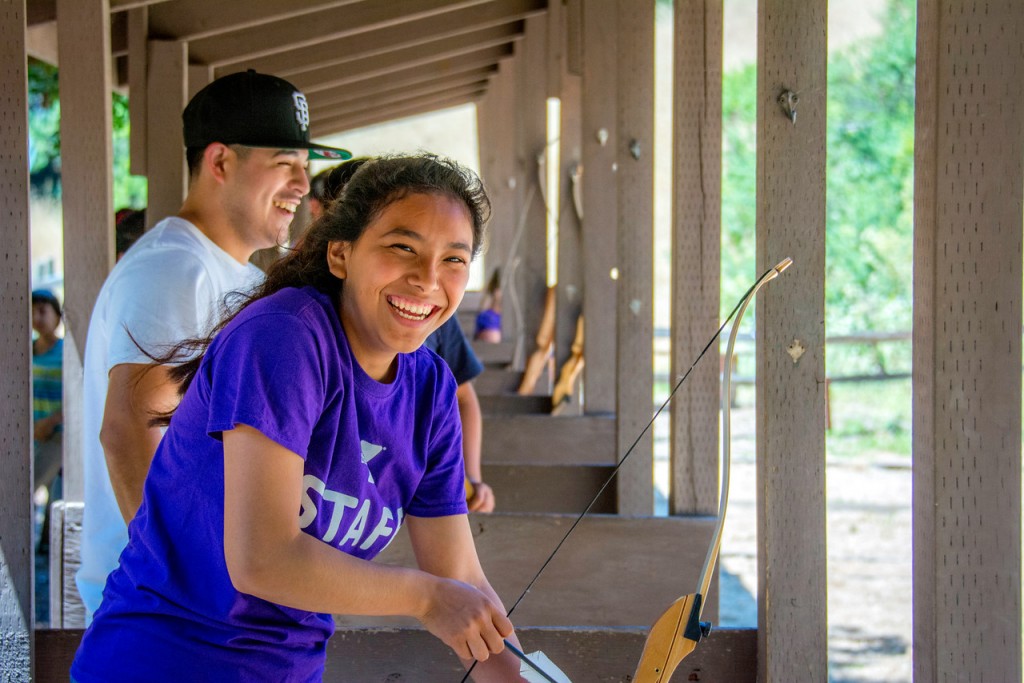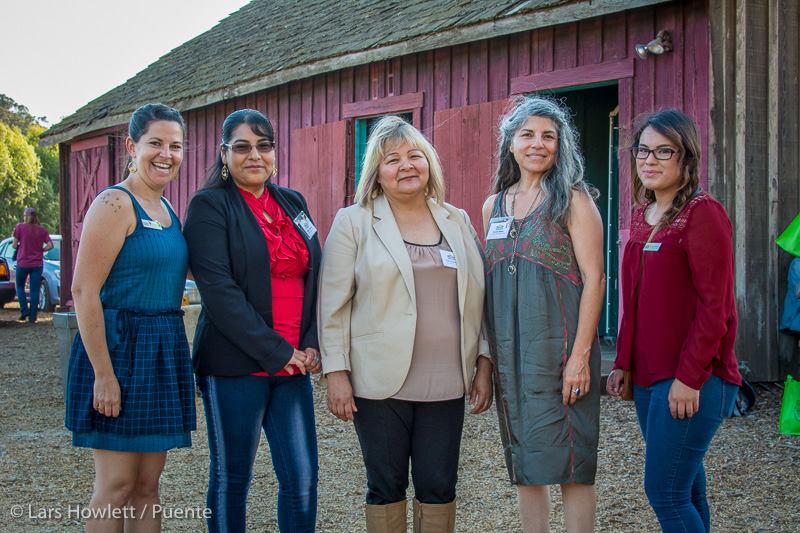Daniel Portillo heard it all his life: how his parents came to Pescadero from Mexico to give their children a brighter future. How hard they worked in the fields growing and harvesting vegetables.
All so that he could go to school and have better opportunities, like a college education and a profession that did not involve hard labor for minimum wage.
It just didn’t mean much to Daniel. At 16, he didn’t much see the point of getting good grades or paying attention in class. Homework was dumb and school was hard and boring. It was more fun to goof off. Besides which, he could see his parents were earning money without a college education. Why did he need to go to college?
He barely graduated from his sophomore year at Pescadero High. After a parent-teacher meeting to discuss his grades, his parents sat him down at the kitchen table and warned him that something had to change.
“I was messing up my life,” confesses Daniel. “They told me that if I didn’t do good I was going to end up working in the fields or end up in jail – just end up in many places I didn’t want to be.”
But ending up in the fields didn’t sound like the end of the world to Daniel, who lives at a ranch on a remote part of the coast with his parents, younger siblings, and other farm laborers. Their homes belong to their jefe, the farm owner who employs Daniel’s father, Jorge.
He knew farming was hard work, but his father always seemed happy and proud of the work he did. How bad could it be?
“My son used to say, ‘Why do I have to go to school? I can just work.’ I would respond by saying I could give him an opportunity in my work if he wanted it,” says Jorge, a vigorous, expressive man with a joyful demeanor and a strong, calloused grip. (The family’s names have been changed since the parents are undocumented).
Daniel decided to try farm work, and that is how he came to join his father in the fields last summer. While Daniel’s friends had fun relaxing at home or participating in Puente’s summer Youth Leadership and Development Program, Daniel woke up shivering in the dark each morning and was working by 7 a.m., picking onion leeks at first light.
It was the absolute last place Jorge ever imagined ever seeing his son. But they both quickly realized the experience represented an important learning opportunity – and might just be the hardest lesson of Daniel’s life.
“I decided to give him the opportunity to see life in a different way in this world,” says Jorge.
Daniel’s words: “I needed something that would get me straight and I thought the field would help me. So that’s how I went into it.”
It didn’t take Daniel long to realize he was getting more than he bargained for. For two months, Daniel earned $10.25 an hour for picking onion leeks alongside his father and the rest of the crew, a group of Spanish-speaking workers between the ages of 20 and 45. He would pick a leek, sit down, and peel it. When that was done, someone would cut the stem. When he had enough leeks, Daniel would hoist a five-pound bundle over his shoulder and walk to the tractor, which had boxes to transport them to the processing shed. Someone would wash out the boxes and the tractor would return, ready to receive another load.
It was repetitive, grueling work. “We did the same thing all day,” says Daniel. He thought of quitting on his first day but decided against it because “I’m not a quitter.”
His hands started to bruise and blister. He worked through very cold mornings and very hot afternoons. At sundown, his father, the foreman, would make sure the day’s work was done before he left the field with his colleagues. Daniel was so exhausted he was sometimes in bed by 6 p.m.
“I never thought it would be easy, but working in the fields… it’s hard,” says Daniel. “You only get two breaks in the whole day. Fifteen minutes, when you’re working in the fields, does no good. Whatever you have, an apple, that’s good to eat. There’s no fancy things to wipe your hands. You can’t waste time during your break.”
A normally picky eater, Daniel would got so ravenous he would tear into whatever food his mom had packed for lunch.
“My stomach would grumble but I would drink water and just keep working,” he says. Daniel lost so much weight that summer he had to buy a whole new wardrobe for his junior year.
It was a far cry from Daniel’s previous summer jobs through Puente’s summer youth program. For two summers, Daniel provided childcare to preschool-aged children and spent his days playing and planning fun activities with kids. He was warm, comfortable, well fed, and took lots of fun field trips with the other youth in the summer program.
Puente Deputy Executive Director Rita Mancera has known Daniel since he was 8 years old. She also knows his mother, who has come to Zumba classes at Puente, and his father, a longtime Puente ESL student. Mancera was very surprised to hear that Daniel was opting to work in the fields. It’s not work parents want their children to do.
“Parents with formal education want someone to follow in their footsteps if they’ve had a higher education. But the majority of people I’ve met who are low income express it differently, they are going to tell you that they want something better for their children. That is the common denominator in Pescadero,” she says. Mexican families use an expression for this; they say they want their children to become “una persona de bien” – someone who does something good in life.
That’s exactly what Jorge wants for Daniel, his eldest child and his first pride. “My biggest dream is for him to be a professional and to have good work. I tell him, son, the opportunity is inside you. In my family, you’ll be the first with a college education. When he’s a professional, his son will be too and so will his grandchildren.”
Growing up in Mexico, Jorge loved learning. He graduated from secondary school (the equivalent of 9th grade in the United States) with a near-perfect GPA. But at 16, he had to start working construction to support his parents. Later, he came to the U.S. for the same reason. Eventually, he became a foreman, overseeing other workers and running the farm, and earning more than other workers. He has sent enough money home to Mexico that he has already built his mother a house. He also built one for himself in Mexico City. His sisters live in it right now.
“When I see my children accomplish their dreams here, I’ll go back,” he says.
It didn’t take long for Daniel to recognize that he didn’t want to be a farm worker for the rest of his life. He gained a new respect for his father when he realized how tired he must be after work, and yet he still made an effort to spend time with his children. He also goes to school board meetings to represent his children’s best interests, and to ESL classes at Puente when he can.
“I saw that he really loves me, and he really wants me to be someone,” says Daniel.
That was the turning point. When Daniel went back to school this fall, he started paying attention in school and doing his homework. He now gets Bs and Cs instead of Ds and Fs. He’s surprised at how easy it is.
“This summer changed my point of view. Doing good in school, doing my homework — that’s the way I help my dad now,” says Daniel.
Mancera says she’s witnessed a palpable transformation in Daniel, who is 17 now and has decided he would like to go to college. He has a bank account for his college savings and he is working on getting his driver’s license so he can commute home from college on weekends. He wants to attend Sacramento Universal Technical Institute and learn how to be an auto mechanic. His dream is to open his own garage and fix cars, boats and motorcycles. He’ll be his own boss. When he wants to take a break, he won’t need to ask anyone.
“In a way I almost expected he was going to have some sort of ‘aha moment’ this summer, but I was not expecting everything that he discovered about himself and his family,” says Mancera. “I’m excited for Daniel’s future. I know he’s going to do well, but I think he’s going to do something extraordinary too.”







